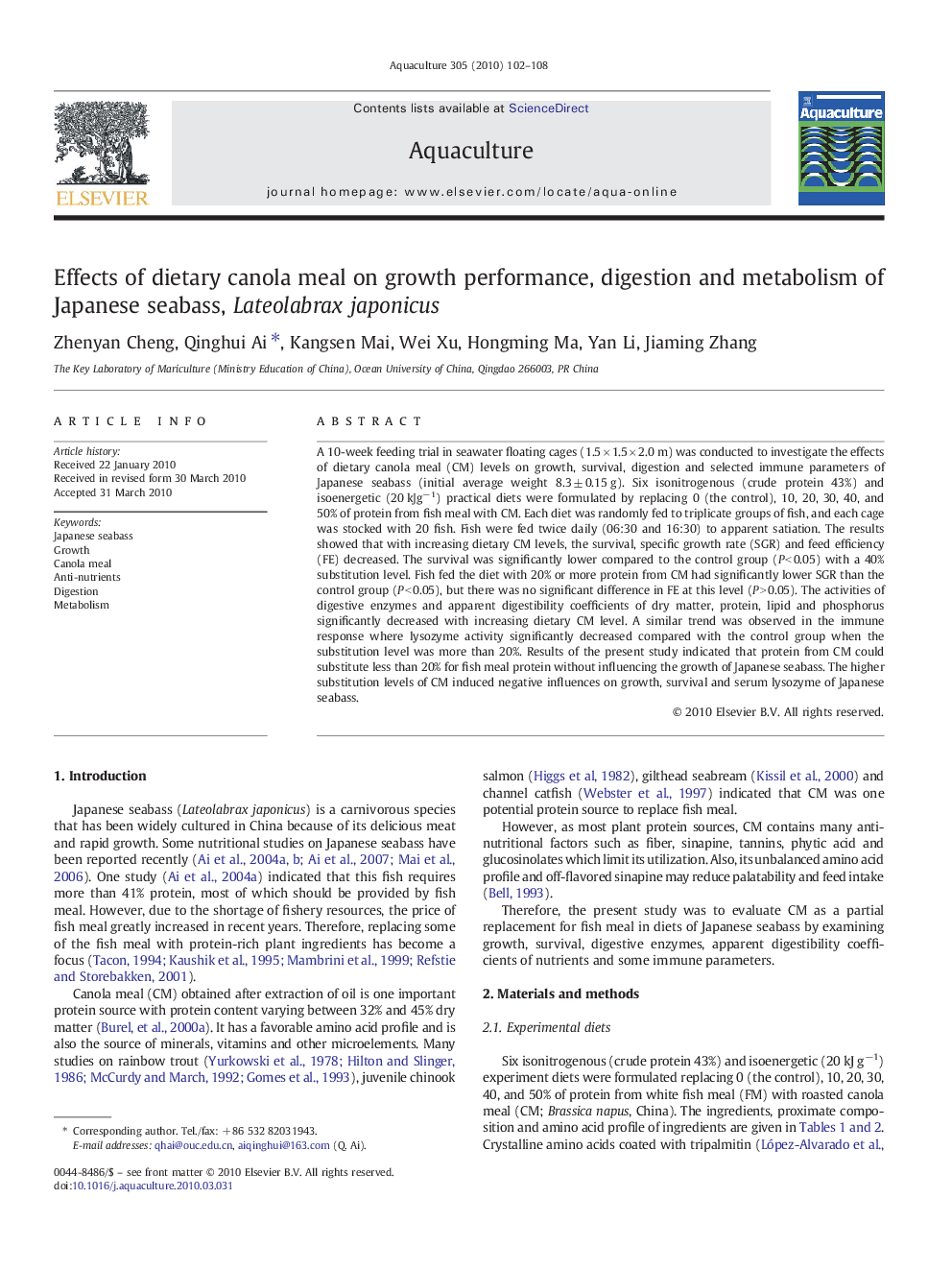| Article ID | Journal | Published Year | Pages | File Type |
|---|---|---|---|---|
| 2423534 | Aquaculture | 2010 | 7 Pages |
A 10-week feeding trial in seawater floating cages (1.5 × 1.5 × 2.0 m) was conducted to investigate the effects of dietary canola meal (CM) levels on growth, survival, digestion and selected immune parameters of Japanese seabass (initial average weight 8.3 ± 0.15 g). Six isonitrogenous (crude protein 43%) and isoenergetic (20 kJg−1) practical diets were formulated by replacing 0 (the control), 10, 20, 30, 40, and 50% of protein from fish meal with CM. Each diet was randomly fed to triplicate groups of fish, and each cage was stocked with 20 fish. Fish were fed twice daily (06:30 and 16:30) to apparent satiation. The results showed that with increasing dietary CM levels, the survival, specific growth rate (SGR) and feed efficiency (FE) decreased. The survival was significantly lower compared to the control group (P < 0.05) with a 40% substitution level. Fish fed the diet with 20% or more protein from CM had significantly lower SGR than the control group (P < 0.05), but there was no significant difference in FE at this level (P > 0.05). The activities of digestive enzymes and apparent digestibility coefficients of dry matter, protein, lipid and phosphorus significantly decreased with increasing dietary CM level. A similar trend was observed in the immune response where lysozyme activity significantly decreased compared with the control group when the substitution level was more than 20%. Results of the present study indicated that protein from CM could substitute less than 20% for fish meal protein without influencing the growth of Japanese seabass. The higher substitution levels of CM induced negative influences on growth, survival and serum lysozyme of Japanese seabass.
